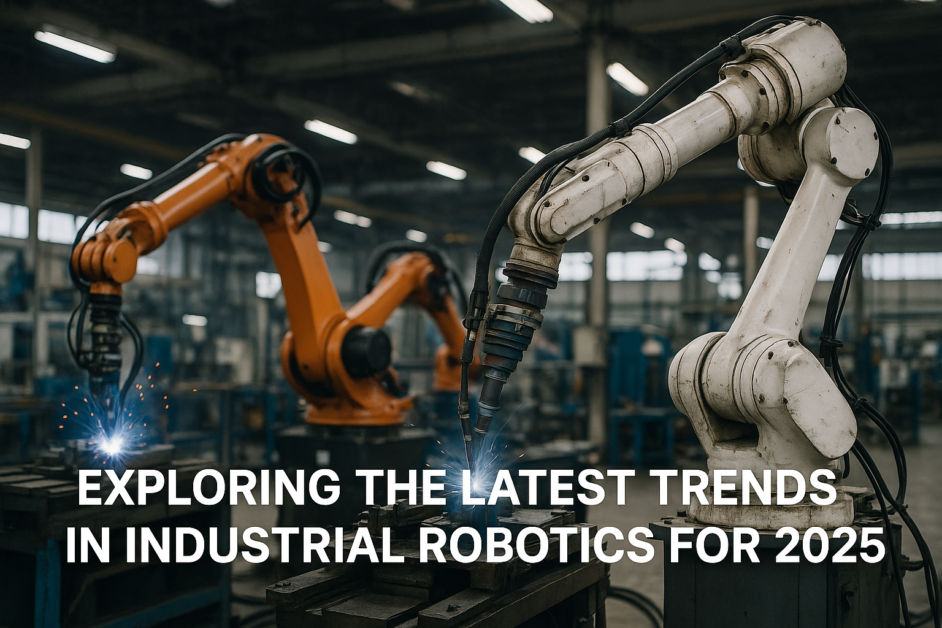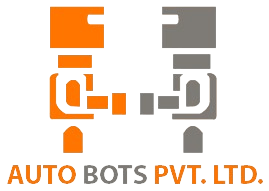
Industrial robotics is changing fast, and 2025 is going to be a year of revolution for the industry. From AI robots to intelligent manufacturing robots, the industry is witnessing revolutionary development. This blog outlines the new trends in industrial robotics for 2025 and how they are changing the way manufacturing and automation will look in the future.
The Rise of AI in Industrial Robotics
AI is at the forefront of revolutionizing industrial robotics. AI-based robotics is turning automation more adaptable, smarter, and efficient. In 2025, AI will make robots capable of processing immense data in real time, giving them better decision-making abilities. Businesses making investments in AI-based automation are witnessing increased productivity, fewer errors, and streamlined operations.
How AI Has an Impact on Industrial Robotics in 2025
- Better Vision Systems – AI allows robots to spot and handle objects more.
- Predictive Maintenance – Machine learning tools help foresee breakdowns before they occur cutting down on idle time.
- Self-Learning – Robots can adjust to new jobs without needing lots of new coding.
- Natural Language Processing (NLP) – AI-equipped robots can grasp and answer human orders more.
Smart Manufacturing Robots Revolutionizing Industries
Smart manufacturing robots are making factories work better and adapt more. These robots combine IoT, AI, and robotics automation to make manufacturing processes better. The growth of 5G networks will boost what they can do even more letting machines and human workers talk to each other without problems.
Latest Innovations in Robotic Automation for Manufacturing
- Collaborative Robots (Cobots) – Cobots work with humans helping them get more done and stay safer at work.
- AI-Powered Robotics – Machine learning and AI programs help robots work better and change as needed.
- Edge Computing in Robotics – Handling data close to where it comes from cuts down delays and helps make decisions faster.
- Robotics and Machine Learning – People are using machine learning models to help robots do better over time.
The Role of Machine Learning in Industrial Robots
Machine learning has an impact on making robots smarter and more self-reliant. By looking at patterns, robots can do tasks with better precision and productivity. Machine learning plays a part in industrial robots in these ways:
- Spotting Problems – Finding flaws and quality issues.
- Flexible Manufacturing – Changing processes on the fly based on live data.
- Human-Robot Collaboration – Allowing smooth teamwork between robots and human staff.
Future Applications of Industrial Robotics in Factories
Industrial robots are being brought in to function in many factory environments, where they are increasingly improving the efficiency of so many different types of work. These emerging applications include:
- Automated Assembly Lines – Decreased the need for human labor while increasing precision.
- Smart Warehousing – AI robots improve logistics and inventory management.
- Control Automation – Robots with advanced sensors can guarantee the quality of products.
- Supply chain robotics for automation 2025 – Robotics automation 2025 provides faster and more efficient supply chain operations.
The Benefits of Robotics Automation in 2025
The implementation of robotics automation in 2025 will offer various business gains, including:
- Increased Productivity – Robots can run 24/7, which increases efficiency.
- Cost Savings – Reduced labor costs and fewer production errors.
- Improved Safety – Reduced chances of accidents or hazards at work.
- Scalability – It is easier to expand businesses with automation.
Robotic Projects Integrator in Pune: Leading the Change
India and Pune in particular, is becoming a center of robotics integration. A Robotic Projects Integrator in Pune builds and implements state-of-the-art automation solutions for enterprises. These integrators help organizations apply AI, machine learning, and collaborative robots to enhance their manufacturing efficiency.
Conclusion
The industrial robotics trends for 2025 will deliver a future where AI, machine learning, and smart manufacturing robots will lead to innovation. Organizations implementing robotics automation in 2025 will increase efficiency, reduce costs, and enhance productivity. AI, in conjunction with industrial robotics and collaborative robots (cobots) will push manufacturing to a transformational era.
